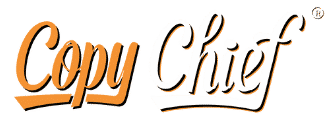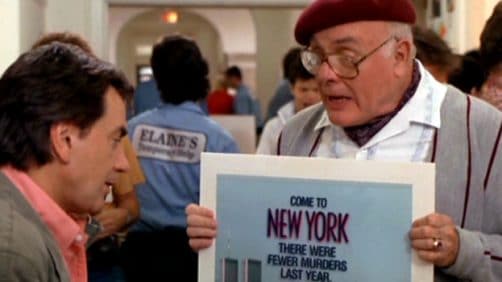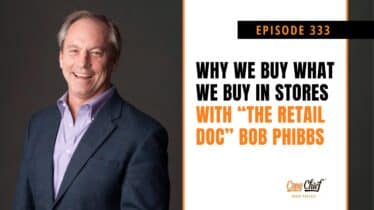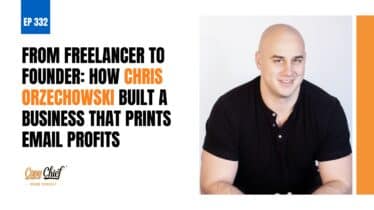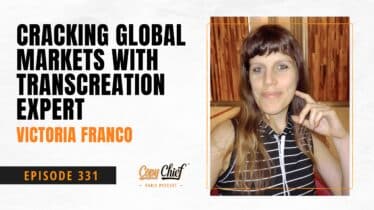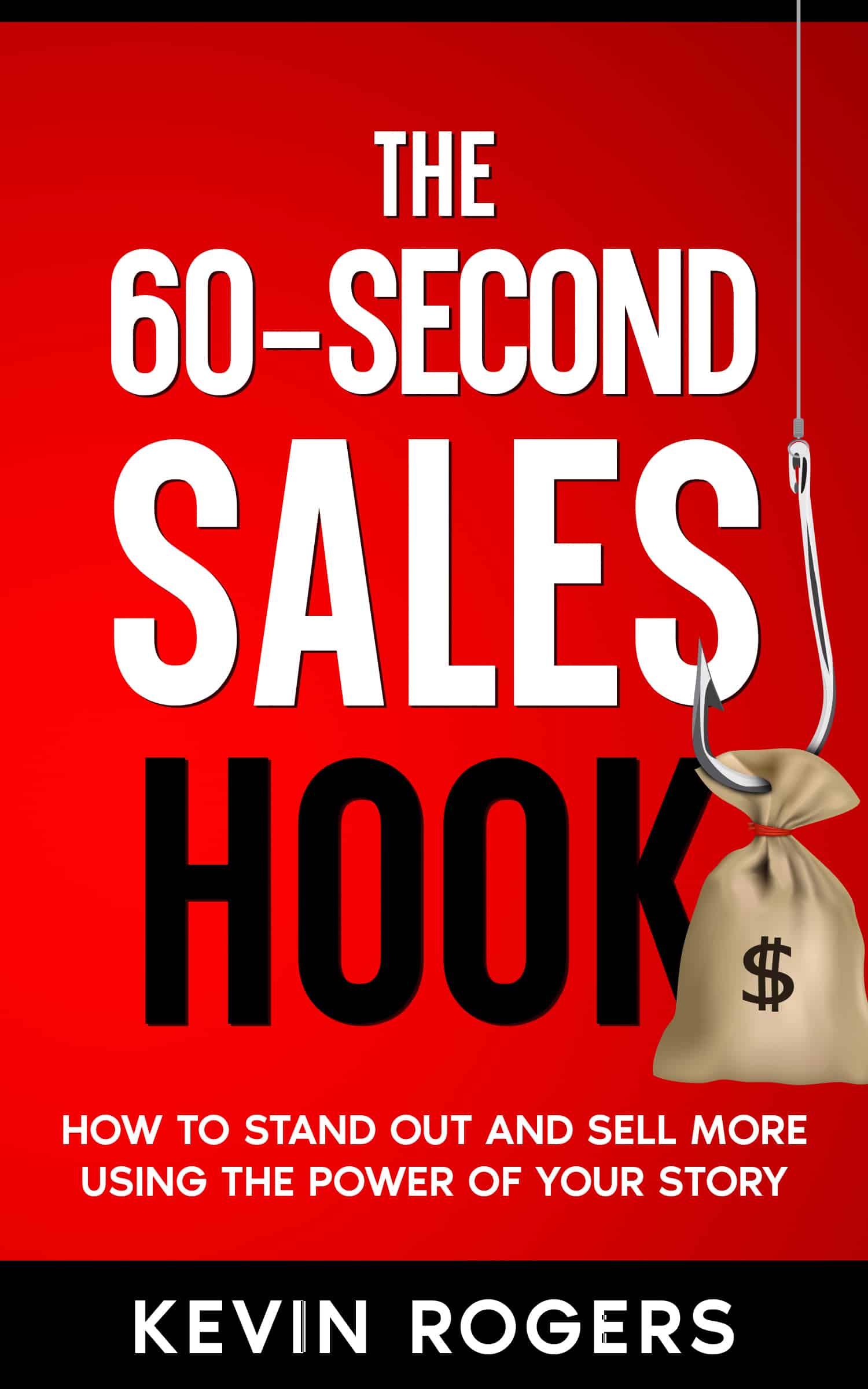When I was a kid, I was an unashamed ad junkie.
(I’d love to tell you I always wanted to be in advertising, but that wouldn’t be true. I wanted to be an airforce pilot.)
In my ears, I can still hear every note of the catchiest theme songs and the excited delivery of ad slogans.
But there’s a bunch of ads I remember more than any others.
And not a single one of them was real.
They were from a little-known movie, called Crazy People.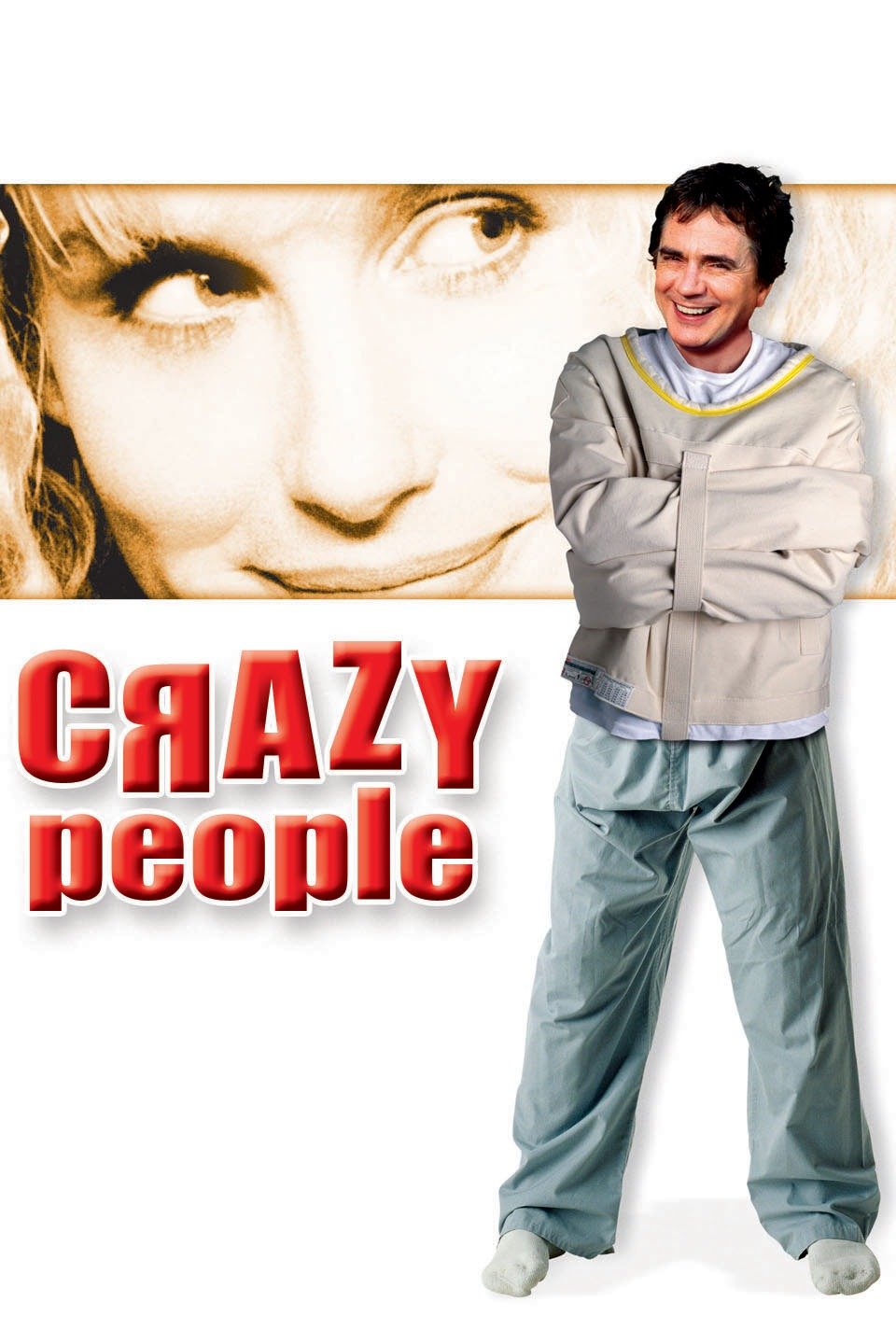
(It would NEVER get commissioned in these more enlightened times considering its rather insensitive name – it’s about patients in a mental institute.)
The movie stars Dudley Moore as high-flying advertising exec, Emory Leeson, who has a sudden moment of clarity and starts pitching ads which are devastatingly honest about the products.
His bosses are furious.
In a rather disproportionate move, his bosses section him in a mental institute – a common penalty back then for such a heinous crime as ‘honesty’.
Of course, a mix-up ensures and his ‘truthful’ adverts are accidentally printed everywhere.
Sales of the products go through the roof.
And “truthful advertising” is born.
On the face of it, it’s a terrible idea from the advertisers’ perspective.
Actively uncovering all the flaws and pitfalls of the very product you’re promoting and exposing them to the world for your audience to see.
That’s a one-way route to killing the sale, surely?
Well, perhaps not.
I’m going to show you how “truthfulness” actually does play a part in persuading buyers (and how the advertising industry unintentionally adopted the approach).
The truth you cannot deny
Let me be clear from the start:
“Truthful” advertising doesn’t necessarily mean that advertising is inherently dishonest.
That’s a key point.
Truthful advertising as I’m defining it here is about being self-effacing as an advertiser and being honest about the product.
“Not misleading” isn’t the same as being “truthful”.
You can easily point out all the strengths and benefits of a product without ever delving into the depths of what the product is really like.
(The perfect example of this is a CV. Be honest. How different would a truthful, no-detail-left-behind, warts-and-all version of your career history look like compared with one you’re likely to drop on the desk of a client or employer? Is it possible you may have overlooked a detail or two to show yourself in the best light?)
Of course, it’s perfectly normal and practical.
But the beauty of ‘truthful’ advertising is about picking the one underlying ‘truth’ about the product – as perceived by the target audience – and changing the message to turn it to your advantage.
Let’s call this the One Big Truth.
The best way to begin explaining how this works is with the stand-out example in Crazy People:
The Volvo ad.
Buy Volvos. They’re Boxy, But They’re Good.
Explaining himself, Leeson tells his boss:
“They ARE boxy. Every intelligent buyer knows that. Let’s level with America!”
Leeson has done what every good marketer should do: consider his audience.
Consider Eugene Schwartz’s Levels of Market Sophistication as explained in Breakthrough Advertising.
For an audience who has become jaded by the same-old advertising and the same-old claims, a new angle or approach is needed to demonstrate the features in a fresh way to the same audience.
Leeson understands this.
He knows his buyer isn’t an idiot.
He makes its ‘safe’ features into a badge of honour – one that a Volvo buyer would appreciate.
(Warning: some swearing in this clip.)
Every product on the market has a weakness.
Every product on the market creates a moment when the potential buyer says – either to the salesperson or themselves – these words:
“Yeah, I like it BUT…”
It’s that ‘BUT’ your copy needs to address.
And address forcefully, unashamedly and in plain sight.
When you dance around a product’s weakness, the reader knows. And the fact it hasn’t been addressed becomes a barrier to purchase.
The Volvo ad addressed EXACTLY what people think about Volvos.
They ARE boxy. But they ARE good.
Add to that the other emotional driver about safety pitched against “sexy” and it’s a winner.
There’s no way a car manufacturer would EVER run an ad like that today…
… or is there?
In the UK, Czech car manufacturer Skoda has an image problem.
Their cars had a terrible reputation from the Cold War. Ugly, unreliable, and completely unsexy.
There couldn’t have been a more unwanted brand in the auto industry.
So the company worked hard to transform its cars.
More powerful, better looking and great value compared with other similar models. They garnered incredible reviews in the motoring press. They should have been flying out of the showrooms.
Yet, no-one wanted to touch them.
They were still Skodas.
But some smart alec (presumably having seen Crazy People) decided to leave behind the staid car advertising schlock and took on the problem head-on and devised a great campaign:
“It’s a Skoda. Which, for some, is still a problem.”
The company acknowledges it has an image problem. Does it use hyperbole and try to uncomfortably pull the wool over the viewer’s eyes?
Or does it take a self-effacing approach and deal with what is fundamentally just an emotional objection head-on?
It deals with it head-on.
And acknowledges that rationality and logical is rarely a consideration when it comes to buying a car.
It also cleverly taps into the buyer’s sense of wanting to be the type of individual who makes smart choices. By using the phrase “for some”, it differentiates the Skoda buying audience from those who buy on emotion and irrational emotion. It’s really smart.
(The great news about this campaign is that it did succeed in shifting public opinion in favour of buying Skodas again and they’re now popular on the streets of the UK.
In other words, the approach works.)
Now truthful advertising doesn’t always have to play on objections. It can agitate or amplify the deep underlying desires that motivate a purchase…
… but are always unspoken.
Until now…
Uncover underlying motivation
The second car ad written by Moore continues to play on these themes, this time acknowledging the deepest desires of the target audience.
SEX.
If there’s one motivator you can play on to drive action, look no further than carnal desire.
The Jaguar ad isn’t original in highlighting the real motivator behind purchase.
It’s just a little more vulgar in its expression…
… but try denying that it taps precisely into the psyche of the audience buying fast, luxury cars.

Jaguar – For men who’d like hand jobs from women they hardly know.
There is not only honesty in this slogan, but also specificity about the casual relationship that really makes it sing.
The second ‘sex sells’ ad in the movie, is its Bahamas ad.
This ad is tantalisingly similar to pretty much any advertising pushing Caribbean and beach holidays.
Sex oozes from typical beach vacation ads.
You simply can’t show enough skin.
What Crazy People’s truthful approach does is simply express in words what you’re really thinking.
In its Bahamas ads, the slogan pitched above an image of a bikini-clad woman emerging from the sea, simply reads:
“Come… IN The Bahamas”
Crass, I know.
It’s not doing anything else but voicing the motivation designed to pull a certain audience to the Caribbean islands.
Now, surely no advertiser would ever be ballsy enough to explicitly suggest getting laid as a result of your vacation?
Wrong!
Step up Las Vegas, with this superb campaign that ran in the UK last summer.
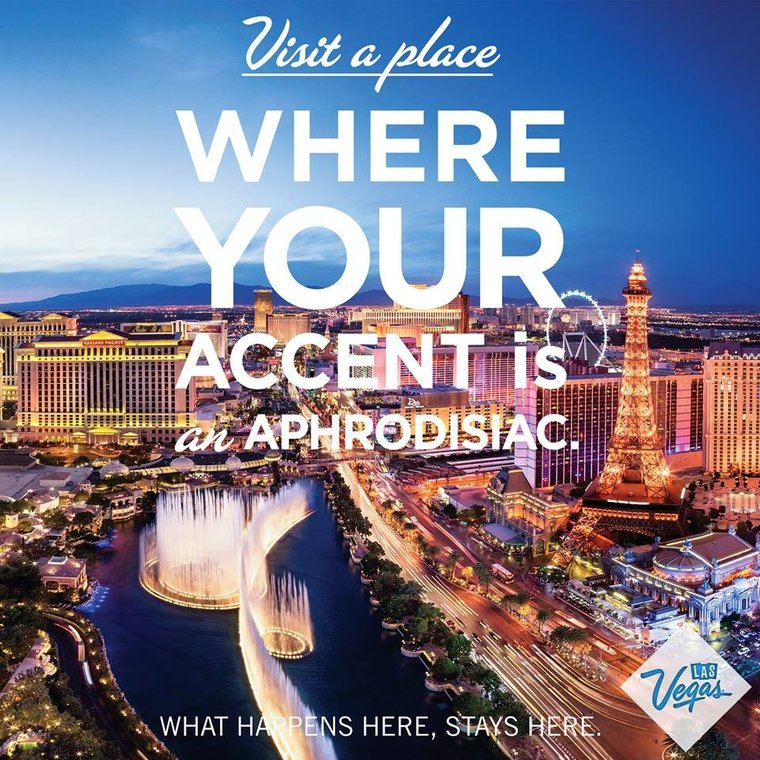
Las Vegas – Where Your Accent Is An Aphrodisiac
Couldn’t be more blatant, could it?
While sex sells, there’s also a darker side which ‘truthful’ advertising can tap… fear.
Acknowledge fears
Another way of being ‘truthful’ in advertising and “levelling” with your audience is by acknowledging their fears.
As a copywriter, this is our bread and butter. Speaking about the audience’s fears to show empathy with their situation.
However, what if their fear is the Great Unspoken Fear about a whole industry.
This next ad perfectly exemplifies this.
In designing a creative for United Airlines, Leeson not only acknowledges head-on a fear of flying, he brings up the issue of plane crashes.
WHAT?!
An airline talking about plane crashes?! Are you…. crazy?
But then look how it’s done
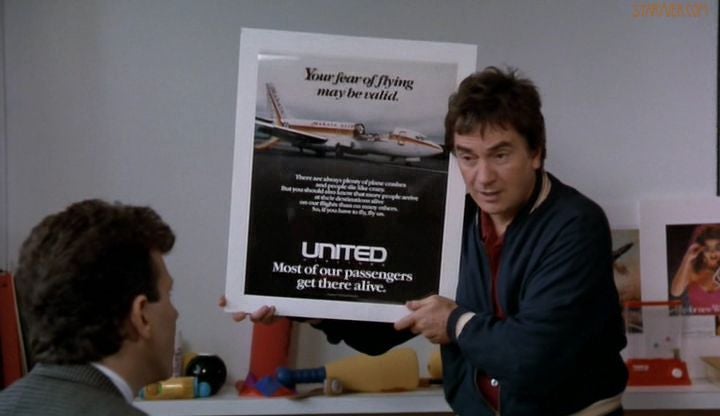
United. Most of our passengers get there alive.
Drayton Bird in Common Sense Advertising suggests that when creating advertisements designed to grab attention your effort should be directed to answering the single question:
“How can I dramatise the emotional benefit of this product or service?”
Everything about the United Airlines ad taps into the emotions.
I’m not 100% convinced it would ever work (so ultimately it would fail as a creative) but there is an angle in there waiting to be set free.
Perceptions, stereotypes and prejudices
The Sony advert created by the Crazy People advertising team quite beautifully encapsulates one of Robert Cialdini’s most powerful persuasion principles – the “because” principle.
In Influence, Cialdini talked about the word “because” and how its use automatically triggers compliance in listeners. The implication of this is that you can add strength to your messaging by simply giving a reason, regardless of the reason’s validity.
That’s what they do with the Sony advert – simply present a ‘reason’ for their product quality.
In trying to discover a new angle for Sony’s products, they turn away from the product and focus squarely on the story.
Sony. Because Caucasians Are Just Too Damn Tall
The message – albeit borderline racist – speaks sufficient “truth” from the viewer’s perspective to be offer a sound and plausible reason for why Japanese-made Sony products are better than US-manufactured electronics.
Note the process they use to come up with the idea initially – after many failed attempts.
Leeson asks:
“What do we know about the Japanese?”
Not “what do we know about Sony?” or “what do we know about the hifi systems?” or “what do people want to hear?”
Anchoring an idea to the readers pre-existing idea of what they think they know is powerful.
The same applies to the Greek tourism advertising campaign.
When France was the obvious tourist destination in Europe for the travelling American, how better to play up the benefits of neighbour Greece than highlighting the difference in welcome you’d receive.
The French Can Be Annoying. Come To Greece. We’re Nicer.
Not quite in the David Ogilvy league when it comes to changing the face of a country’s fortunes, it plays upon your preconceptions about one country to play up the benefits of another.
And it has shades of Avis’s “We Try Harder” advertising slogan.
Some can be a perfect interplay of perception, prejudice and facts to help break those prejudices, such as the brilliant ad slogan for The Big Apple:
Come To New York. There Were Fewer Murders Last Year.
However, not all ‘truthful’ advertising works. When it steps into the realm of making the audience uncomfortable about their own prejudices or irrational behaviour, it loses its power…
When truthful advertising fails
Truth be told, some of the ads certainly wouldn’t work
Those which too glaring highlight a buyers emotional prejudices would fail.
Although desperately true the Quaker Oats campaign shines a light on why people really buy.

Being told you only buy something because the packaging is pretty is too much of a slap in the face.
As is the “Admit it, you’re fat” ad.
This bluntness goes against everything the diet industry has proven about individuals level of self-responsibility and shifting the blame off them for their weight issues.
It could work as a form of positioning for a brand or individual who wants to play the controversy card to attract similar thinkers to their tribe. It’s certainly bold.
But as a mass advertising angle, no.
And just imagine how that would go down in the social media age?
There is one ad in the film that fails the film’s own test of simply not being honest. That’s the Metamucil ad, as funny as it is.
It’s bold, but isn’t based on fact. However, it’s “Yes, I Want To Go To The Toilet” form is really, rather brilliant.
Metamucil – It helps you go to the toilet. If you don’t use it, you’ll get cancer and die.
Plus, I just don’t think that slogan would make it past legal.
Where it ‘truthful’ advertising works best is in revealing the One Big Truth about a product that no-one dares discuss and transforming this into a positive characteristic of the product.
It succeeds in highlighting underlying motivations and desires and bringing these to the surface.
But pushed too far it also risks uncovering the readers’ darkest thoughts and turning a mirror on themselves too starkly.
Just look at this ad for Continental Express:
Do you really want to admit the delivery of your parcel is more important than basic human decency?
If your job was on the line or a commission hung in the balance, a lot of people would answer very differently in public than they would internally.
That’s where ‘truthful’ advertising really hits you in the craw.
How to be more ‘truthful’
The movie was intended as a satire on the advertising industry (and a disparaging one at that).
Ironically, I believe it’s almost a celebration of the work of advertising and how it gives a voice to those motivations, rational or otherwise, that persuade, compel and move us to buy.
Can you give voice to the One Big Truth in your marketing? What would be the effect on your audience? How would that position you in your market?
Going a little ‘crazy’ to find that new angle that lifts your product or service above your niche may just be what you need.
Have you discovered any examples of ‘truthful’ advertising? Can you come up with some great ‘truthful’ campaign slogans for existing products that would position them better? Leave your comments below.
